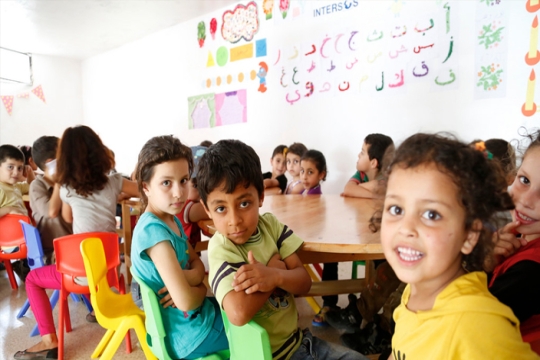The Union for Reform Judaism (URJ) and the Anti-Defamation League (ADL) recently entered into a formal partnership in response to the question posed by URJ president Rabbi Rick Jacobs: “How are we going to respond to the uptick in acts of antisemitism and hate in a thoughtful, intentional, and effective way?”
On July 27, 2021, the two organizations co-hosted a webinar moderated by Barbara Weinstein (Director of the Commission on Social Action and Associate Director of the Religious Action Center), featuring Rabbi Rick Jacobs, Yolanda Savage-Narva (Director for Racial Equity, Diversity, Inclusion, URJ), Jonathan Greenblatt (CEO & National Director, ADL), and Carly Pildis (Associate Director of Community Engagement, ADL). You can watch the video of the webinar below and learn more about the URJ's partnership with ADL.
For me, one of the things that defines antisemitism is that it is part of an orbit of all kinds of oppression and hate that include anti-Black racism, bigotry, xenophobia, homophobia and the list goes on and on. In Eric Ward's piece, “Skin in the Game,” one of the many brilliant points that he makes is that antisemitism forms this core around which other forms of hate and bigotry revolve, evolve, and spread.
Strengthening the Black-Jewish Alliance
One of the best-known and complicated connections between Jews and Blacks was the Civil Rights Movement. 57 years ago, 3 civil rights workers, James Chaney, Michael Schwerner, and Andrew Goodman -- one young Black man and 2 young Jewish men – were murdered in Philadelphia, Mississippi. Their lives were tragically taken in pursuit of freedom and democracy for all people.
And we think about Rabbi Abraham Joshua Heschel, Rabbi Maurice Eisendrath, and so many others who marched with the Reverend Martin Luther King, Jr. My Jewish friends Larry Rubin and Lewis Zuckman, who were part of the Student Nonviolent Coordinating Committee (SNCC) and Freedom Riders, were on the front lines side by side with Black Christian leaders of the Civil Rights Movement. They shared an unwavering commitment to stand together to fight for what was right for humanity, which is a fundamental Jewish value that we all share.
That alliance is still strong today, but we must keep in mind that alliances, like all relationships, can get complicated. Maintaining strong relationships takes work. It takes communication, mutual understanding, mutual respect, and then there's this give and take that is not always simultaneous.
Since the earlier Civil Rights Movement, the majority of Black Christians have continued to deal with extreme poverty and economic inequality while most Jews began to enjoy the privileges provided by the conditional status of whiteness. And so, if we look at where we are today, some of the things that we need to address as we continue to build relationships is that there are unhealed wounds we carry with us from the past as well as the problematic issues that are causing a divide between us today. Although we are natural allies, we must continue to put in the work to build understanding and trust. We must also recognize that the binary of the Black and Jewish community is a false one and that there are people who identify as Black and Jewish. The Jewish community is diverse, multi-cultural, multi-racial, multi-ethnic, including people with all kinds of intersecting backgrounds.
To continue to build that relationship, Black communities, as well as our other allies need to understand that fighting antisemitism is fighting the other forms of discrimination --anti-Black racism, homophobia, xenophobia, and, and, and. In order to do this, we have to continue to come together, but we have to work at it. It's not going to happen just because we are natural allies. We have to communicate to build mutual respect and mutual understanding. We also need to understand that this hatred shape shifts and can often pit people against each other. Once we understand that building those bonds and those intersections will make us stronger and not divide us, we can continue to learn from the legacy of the past and strengthen our alliance in the future as we join forces to fight antisemitism and hate in all its forms.
Read further remarks by Carly Pildis, Jonathan Greenblatt, and Rabbi Rick Jacobs, and watch the full video below.
Related Posts

Native American Heritage Month: Continued Support for the Indigenous Population is a Necessity

Congress Must Expand the Child Tax Credit, a Powerful Tool Proven to Reduce Poverty


